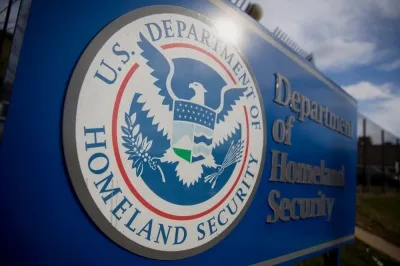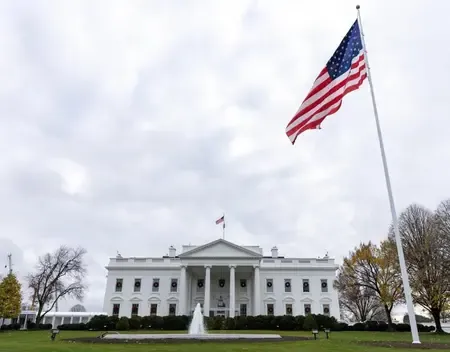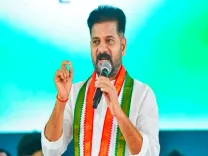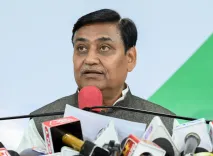Leadership Elections and Reparations Highlight Upcoming AU Summit Agenda
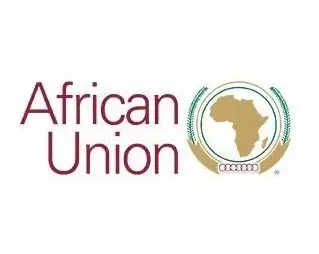
Synopsis
Key Takeaways
- African leaders will gather to discuss reparatory justice.
- The summit aims to address historical injustices and promote healing.
- Leadership elections within the AU Commission are a major focus.
- Success hinges on collective commitment and bargaining power.
- Engagement with the diaspora and international bodies is crucial.
Addis Ababa, Feb 7 (NationPress) The 38th African Union (AU) summit, set for February 12-16, will see African leaders addressing pivotal issues shaping the continent's future.
This annual event, hosted under the AU's 2025 theme 'Justice for Africans and People of African Descent Through Reparations' at its headquarters in Addis Ababa, Ethiopia, will emphasize reparatory justice and racial healing, as well as other critical topics such as the election of senior leadership within the AU Commission (AUC), Africa's socio-economic growth, and maintaining peace and security.
Experts assert that the effectiveness of these discussions will rely on the united commitment of African leaders and their capability to transform ambitious goals into practical strategies.
The AU has indicated that this year's theme, which will be formally introduced during the summit, highlights the necessity of confronting historical injustices related to colonialism, trans-Atlantic enslavement, apartheid, and systemic discrimination.
In its concept note, the AU emphasized that reparatory justice involves not only correcting past injustices but also promoting equity, healing, and acknowledging the rights and contributions of Africans across the board, according to Xinhua news agency.
The note proposed a detailed approach to achieving the reparatory justice agenda, which includes historical acknowledgment, financial reparations, land restitution, cultural preservation, policy reforms, international accountability, community empowerment, and ongoing advocacy.
Costantinos Bt. Costantinos, a former advisor to the AU and the UN Economic Commission for Africa (ECA), remarked that the AU's commitment to reparatory justice is 'bold and commendable', yet its successful application depends on multiple critical factors, including Africa's bargaining power and unity on the global stage.
He noted, 'At present, both the African Union and the continent have limited leverage to demand international accountability for historical injustices from the colonial epoch.' He further stated, 'While the advocacy for financial reparations and restitution of cultural and economic resources is admirable, realizing these aims requires substantial bargaining power and solidarity—qualities that both Africa and its individual nations currently seem to lack in the context of reparatory justice.'
The forthcoming summit is anticipated to serve as a platform for African leaders and the 55-member pan-African bloc to delineate a clear strategy for promoting the reparations agenda. This includes engaging with international organizations, strengthening ties with the African diaspora, and mobilizing resources to support efforts addressing historical injustices. The success of these initiatives will largely hinge on the AU's ability to rally support from member countries, regional economic communities, and civil society.
Another significant topic on the summit's agenda is the election of senior leadership roles within the AUC, such as the chairperson, deputy chairperson, and six commissioners.
With all eight senior positions within the AUC up for election, the AU has underscored that the electoral process will adhere to principles of equitable regional representation, inclusivity, and merit-based selection.
The candidates for the AUC chairperson position include Djibouti's Foreign Affairs Minister Mahamoud Ali Youssouf, Kenya's former Prime Minister Raila Odinga, and Madagascar's former Foreign Affairs Minister Richard Randriamandrato.
In December, these three candidates outlined their priorities for advancing the AUC's vision for a united, integrated, and prosperous Africa. During a live televised debate, they elaborated on their strategies and commitment to enhancing the AU's transformative role in addressing Africa's present and emerging development and security challenges.
Costantinos stated that a key focus area for the incoming AUC leadership could be amplifying the AU's role and capabilities in realizing Africa's transformative vision for a prosperous, united, and peaceful continent.
He emphasized, 'The new leadership will be tasked with crafting innovative solutions to tackle Africa's development and security challenges.' These challenges include poverty, inequality, conflict, and ongoing insecurities, among others.
The new leadership is expected to drive various continental strategies and initiatives aimed at enhancing the continent's human capital while also pursuing essential continental development objectives, such as eradicating extreme poverty, promoting good governance and democracy, ensuring access to quality education and healthcare, and fostering overall socio-economic growth, Costantinos noted.
Given the escalating crisis in eastern Democratic Republic of the Congo, the AU summit will also address Africa's peace and security issues, which pose a significant obstacle to the continent's progress.
The AU has highlighted the summit's importance as a crucial platform in Africa's endeavor to leverage the connection between peace and socio-economic development, as articulated in Agenda 2063, the continent's 50-year development framework.
As part of the annual assembly, the AU Executive Council meeting, which includes foreign ministers from AU members, is scheduled for February 12-13, followed by the assembly of African heads of state and government on February 15-16.


